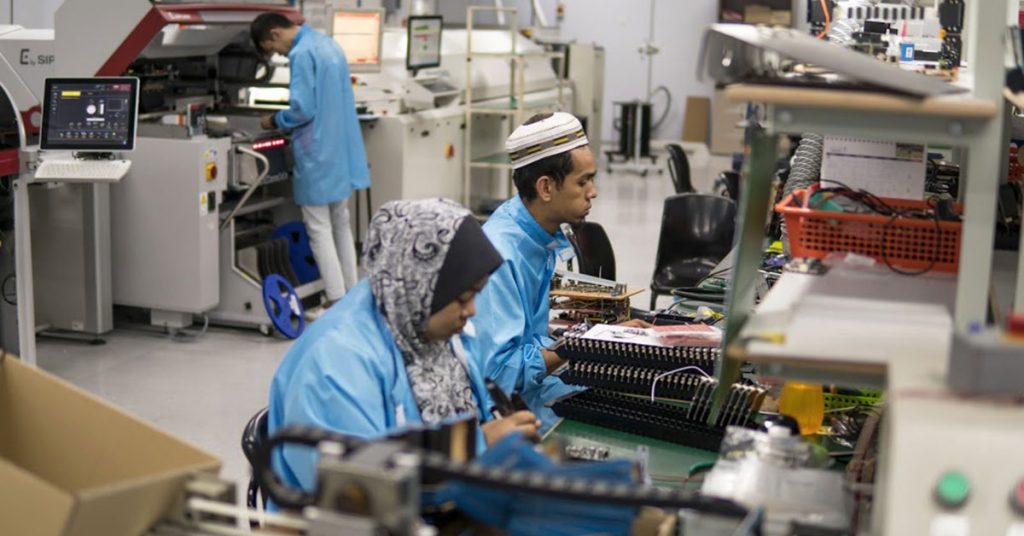- Cytron Technologies is an online marketplace based in Penang that caters to the maker community in Malaysia as well as the Southeast Asia region.
- Founded in 2004, Cytron makes it easy for students and makers to access components such as integrated circuits and sensors that would otherwise be hard to obtain through retail.
- They also have an online forum where makers can connect and share knowledge, and they also run occasional workshops to teach and equip beginners with skills to get started on their maker journey.
Anyone with knowledge of the tech startup scene will know how important the maker community is to the ecosystem.
The maker community is a collection of individuals mostly based in centres called makerspaces that house cutting-edge tech and equipment to enable the creation of tomorrow’s technological necessities.
Aside from just creating and innovating, this community (also known as the “maker movement”) is an invaluable resource where younger minds can learn about things like artificial intelligence, robotics, and 3D printing among other things.
In 2016, it was reported that there were nearly 1,400 makerspaces around the globe—nearly 14 times more compared to 2006.
In 2017, it was noted that the maker movement in Malaysia was growing at a robust pace, with Prime Minister Najib reinforcing the government’s commitment to focus on Malaysia’s internet economy and in turn, the local digital maker movement.
Hoping to be the leading light of the movement locally is Cytron Technologies—a Penang-based online supplier of electrical and robotic parts that is aiming to give digital makers in Malaysia the chance to show the world just what they’re capable of.
University Roots
It all began in late 2004, when Tan Eng Tong, Ober Choo, Phang Chin Yee, Youn Koon Hong, and Kong Wai Weng emerged as national champions at Robocon Malaysia. Then university mates, they were majoring either in mechatronics or mechanical engineering at the University of Technology, Malaysia (UTM) in Skudai.
“We started Cytron when we were still in the fourth year of our five year degree programmes,” said Eng Tong.
“After becoming national champions at Robocon, we received a lot of inquiries from other universities to train their team members and supply them with materials to build robots.”

“We saw that there was a demand for parts among students to do their projects,” said Chin Yee.
“We understood because we also faced the same problem.”
“Parts were hard to find. And even if you could find them online, most probably you’d online find them somewhere overseas,” he added. “We managed to source for parts or designed our own, and made them easily available for the local market.”
“Most of the electronic components like integrated circuits and sensors are designed for the industry, making it hard for students and makers to access,” said Eng Tong. “We turn them into breakout boards so they can use them directly in their projects.”
Small Capital, So What?
Since inception, Cytron has grown from just being a supplier of parts and equipment to now operating a full-fledged online marketplace along with a manufacturing plant in Bukit Mertajam, Penang.
Through their website, makers and builders can find all sorts of supplies ranging from circuit boards and microcontrollers, all the way to passes for workshops and seminars that they organise occasionally.
“Over the years, we’ve seen a lot of cases where students learn to build stuff using our solutions, then slowly turn their prototypes into commercial products and set up their own companies,” said Eng Tong.
“These kinds of success stories keep us motivated.”
The Cytron journey began with each founding member contributing RM650 to the starting capital. According to Eng Tong, this was due to the fact that that was all the money they had in their bank accounts at the time.
“Back when we started the company, there was no such thing as startups or getting funded,” said Chin Yee. “We were only 21, and there wasn’t much information for us to refer to on the internet.”

He mentioned the pains that the five of them went through, including having to bootstrap and persevering through negativity and naysayers.
“Later on, three of our juniors joined us and our team increased from five to eight,” he said.
“I’m proud to say that after 14 years, we are still working as a team with all eight of us still in Cytron.”
“We’ve evolved from friends to business partners, and now we see each other like a big family.”

The Making Of A Tech Ecosystem
Co-founder Ober Choo also had a few thoughts on the makerspace community in Malaysia, and said that the local scene currently has plenty going for it.
“The movement started late compared to other neighbouring countries like Thailand and Singapore, but we are gaining momentum through government initiatives that encourage more students to get involved in the maker movement,” he said.
“With more players coming into the market, we need the government to further recognise the maker movement and start including it as subjects or activities in schools.”
He also believes that the local makerspace community is vital to driving Malaysia’s tech and startup scene forward.
“The maker movement is important as it encourages the community to solve problems, which is what we are all about—solving both domestic and international problems,” Ober added. “Through the maker community, members can engage with others from around the world and be exposed to as well as get inspired by different solutions to problems.”
“We’ve been seeing more tech startups popping up in the last three years and I believe the maker movement is a direct contributor to the startup scene locally.”
To SEA And Beyond
In tandem with the growth of the local startup ecosystem, Cytron themselves have managed to perform quite satisfactorily.
“One of our biggest achievements was building and commercialising RERO—the very first educational robot in Southeast Asia,” said Eng Tong. “We also set up an automated PCB assembly line in our factory in 2017.”
“Another one of our famous products is the brushed motor driver, a product we started developing in 2005,” added Ober. “Through constant improving of our product, we now have 15 different models of motor drivers.”
“This led to an incident where a Japanese client contacted us with a challenge to design a 106A motor driver, which we delivered in three months. Now they are using that driver in the famous robot restaurant in Shinjuku.”
“We made RM6 million in revenue in 2017, and are looking to hit a growth of 30% this year,” Chin Yee said. “We ultimately want to grow Cytron to be worth RM100 million, and become the biggest digital maker marketplace in Southeast Asia as well as become top five in the world.”

Chin Yee and Eng Tong also shared how they aim to achieve this.
“Our immediate plan is to focus and grow the local market as we foresee that there’s still room for expansion locally,” said Chin Yee. “At the same time, we will be attending events overseas and look out for opportunities to increase our distribution abroad.”
“At the beginning, we tried to do too many things for too long and ended up losing our focus,” he added.
“Our challenge now is to grow and scale while focusing only on the business model that we have identified.”
- To know more about Cytron Technologies, head on over to their website.
Also Read: The Diamond Industry Is F*cked Up—Fixing It Got These Two Bros RM3.5 Mil In 2 Years
Feature Image Credit: Cytron Technologies













